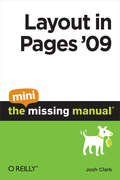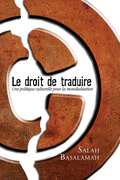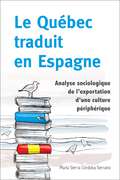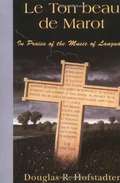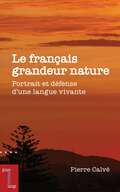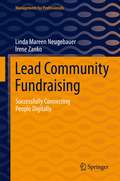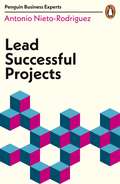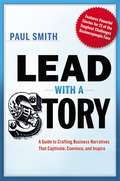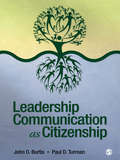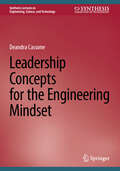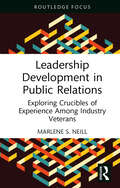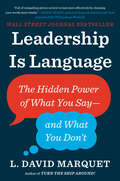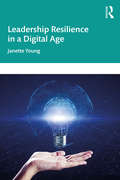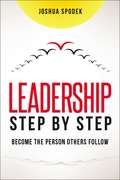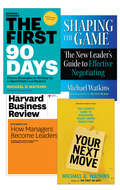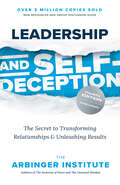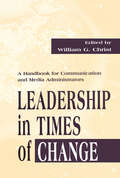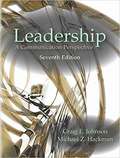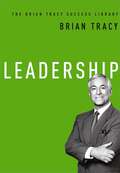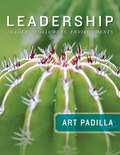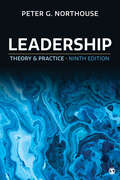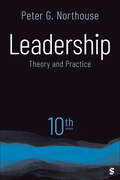- Table View
- List View
Layout in Pages '09: The Mini Missing Manual
by Josh ClarkPages '09 is more than just a word processor. It lets you create gorgeous page layouts for glossy newsletters, catalogs, brochures, greeting cards-you name it. This eBook makes you an instant expert in Pages' layout features. You'll learn how to arrange your text so it really flows and how to complement it with images, sounds, and movies.
Le Droit de traduire: Une politique culturelle pour la mondialisation (Regards sur la traduction)
by Salah BasalamahCet ouvrage étudie les conditions d’émergence historiques et discursives du « droit de (la) traduction » et du droit qui l’administre : le droit d’auteur. Privilégiant une approche essentiellement archéologique, l’auteur montre comment la conception classique de la traduction a joué un rôle sensible dans la formation du discours juridique qui a contribué à l’avènement de l’auteur et de son droit tels que conçus aujourd’hui. L’auteur examine les implications culturelles, politiques et éthiques du droit de traduire, surtout pour les pays en développement, engageant par là une perspective postcoloniale. Soucieuse d’une meilleure diffusion du patrimoine culturel mondial, la politique du droit de traduire qu’il propose n’interroge pas seulement le droit d’auteur comme catalyseur de la marchandisation de la production intellectuelle, mais également le droit international comme instrument de l’impérialisme culturel de la mondialisation. Conçu désormais hors du champ juridique traditionnel mais plutôt dans celui d’une résistance politique, l’auteur démontre comment le droit de traduction devient alors un « droit à la traduction ». Publié en français
Le Québec traduit en Espagne: Analyse sociologique de l’exportation d’une culture périphérique (Regards sur la traduction)
by María Sierra SerranoComment une « petite nation » peut-elle exister et subsister dans l’espace culturel mondialisé actuel ? Par quels mécanismes une culture minoritaire peut-elle être exportée et se tailler un créneau dans un marché culturel central surchargé ?L’ouvrage examine les transferts culturels du Canada vers l’Espagne en analysant un corpus de 77 traductions d’œuvres littéraires québécoises traduites en Espagne, en espagnol et en catalan, entre 1975 et 2004. Les assises théoriques de cette étude reposent sur la sociologie des champs de Pierre Bourdieu appliquée à la traduction et s’appuient, d’une part, sur les études de réseaux et, d’autre part, sur la recherche dans le domaine de la diplomatie culturelle. L’auteure montre comment les intérêts propres à chacun des champs culturels concernés – source (canadienne et québécoise) et cible (espagnole et catalane) – se traduisent par des stratégies politiques, commerciales, éditoriales et textuelles différentiées. L’ouvrage porte en outre un regard inédit sur le rôle déterminant (mais non déterministe) des acteurs institutionnels, ici canadiens et québécois : ceux-ci développent des stratégies et des structures visant à promouvoir et à accueillir la littérature québécoise en Espagne et en Catalogne. L’auteure se penche aussi sur l’action d’autres agents (éditeurs, directeurs de collection, traducteurs, professeurs de littérature, etc.) qui jouent un rôle central dans le transfert concerné.Publié en français
Le Ton Beau De Marot: In Praise of the Music of Language
by Douglas R. HofstadterLost in an art--the art of translation. Thus, in an elegant anagram (translation = lost in an art), Pulitzer Prize-winning author and pioneering cognitive scientist Douglas Hofstadter hints at what led him to pen a deep personal homage to the witty sixteenth-century French poet Clement Marot." Le ton beau de Marot" literally means "The sweet tone of Marot", but to a French ear it suggests "Le tombeau de Marot"--that is, "The tomb of Marot". That double entendre foreshadows the linguistic exuberance of this book, which was sparked a decade ago when Hofstadter, under the spell of an exquisite French miniature by Marot, got hooked on the challenge of recreating both its sweet message and its tight rhymes in English--jumping through two tough hoops at once.In the next few years, he not only did many of his own translations of Marot's poem, but also enlisted friends, students, colleagues, family, noted poets, and translators--even three state-of-the-art translation programs!--to try their hand at this subtle challenge.The rich harvest is represented here by 88 wildly diverse variations on Marot's little theme. Yet this barely scratches the surface of Le Ton beau de Marot, for small groups of these poems alternate with chapters that run all over the map of language and thought.Not merely a set of translations of one poem, Le Ton beau de Marot is an autobiographical essay, a love letter to the French language, a series of musings on life, loss, and death, a sweet bouquet of stirring poetry--but most of all, it celebrates the limitless creativity fired by a passion for the music of words.Dozens of literary themes and creations are woven into the picture, including Pushkin's Eugene Onegin, Dante's Inferno, Salinger's Catcher in the Rye, Villon's Ballades, Nabokov's essays, Georges Perec's La Disparition, Vikram Seth's Golden Gate, Horace's odes, and more.Rife with stunning form-content interplay, crammed with creative linguistic experiments yet always crystal-clear, this book is meant not only for lovers of literature, but also for people who wish to be brought into contact with current ideas about how creativity works, and who wish to see how today's computational models of language and thought stack up next to the human mind. Le Ton beau de Marot is a sparkling, personal, and poetic exploration aimed at both the literary and the scientific world, and is sure to provoke great excitement and heated controversy among poets and translators, critics and writers, and those involved in the study of creativity and its elusive wellsprings.
Le français grandeur nature: Portrait et défense d'une langue vivante (Essais et fiction)
by Pierre CalvéLe français est probablement la langue la plus surveillée, réglementée et critiquée sur terre. Celui parlé au Québec et dans le reste de la francophonie canadienne l’est d’autant plus qu’il a longtemps été considéré comme le parent pauvre et fautif de la langue prétendument utilisée en toutes circonstances par une certaine élite de la société française.Dans une vingtaine de textes illustrés de nombreux exemples, Pierre Calvé brosse un portrait aussi fidèle, réaliste et objectif que possible du français en tant que langue vivante et qui varie naturellement dans le temps, dans l’espace et dans la société. Les sujets abordés sont diversifiés et accessibles aux non spécialistes : les caractéristiques de la langue parlée au quotidien, les registres de langue, la remise en question des normes du « bon usage », les critères d’acceptabilité sociale et linguistique, les recommandations souvent discutables des « gardiens » de la langue, ainsi que des thèmes comme les anglicismes, l’insécurité linguistique et la complexité de l’orthographe.Le français grandeur nature comble un vide entre les connaissances traditionnelles acquises lors de l’apprentissage scolaire du français (surtout écrit) et celles que devrait avoir tout francophone sur cette magnifique langue qu’est le français dans toute la richesse de sa diversité.
Lead Community Fundraising: Successfully Connecting People Digitally (Management for Professionals)
by Linda Mareen Neugebauer Irene ZankoThe world is changing, and so are our donors. In the future, it will become even more important for organizations to find leads, supporters and new donors online - because digitization is a bottleneck in fundraising.This book highlights universal fundraising opportunities. It explains the fundamentals of lead community fundraising and why, especially in digital times, it is important to start with the people - the community. The main topic of the book is the current state of digital fundraising, which is becoming more and more important. More than 45 examples from international fundraising practices provide a valuable foundation for all practitioners in this field.
Lead Successful Projects (Penguin Business Experts Series)
by Antonio Nieto-RodriguezAre you struggling to juggle multiple projects? Do you often lose control of your budget? Does communicating your progress to the rest of your team cause you undue stress? Project management is an essential skill for anyone who needs to get things done in any organisation, and is absolutely critical for anyone leading strategic change. In Lead Successful Projects, the Penguin Business Expert guide, Antonio Nieto-Rodriguez introduces a simplified but strategic approach to project management developed over the last 20 years coaching executives, managers and MBAs.Learn how to break down your project into manageable elements, define smart goals and meet them in this concise and practical guide to project success.
Lead from the Heart: Transformational Leadership for the 21st Century
by Mark C. CrowleyIf you're a leader in America, you've got a big problem. More than half of all workers hate their jobs. In fact, job satisfaction and employee engagement have been declining for twenty-two straight years. One hundred years ago, a job and a paycheck kept workers satisfied. Now, pay barely makes the list. Employees' needs have evolved dramatically. But our leadership practices have failed to keep up. In Lead From The Heart, Mark C. Crowley presents compelling new evidence that the solution leaders need lies in the last place traditional business would seek it: the human heart. Twenty-first-century employees need to feel... valued, respected, developed, and cared for. Their work has to matter. Recent scientific discoveries tell us that it's the heart, and not the mind, that drives human performance and achievement. Drawing on decades of experience as a senior leader for regional and national financial institutions, Mark C. Crowley offers proof that leaders who intentionally engage the hearts of their employees will be rewarded with uncommon (and highly sustainable) performance and achievement.
Lead with a Story: A Guide to Crafting Business Narratives That Captivate, Convince, and Inspire
by Paul SmithStorytelling has come of age in the business world. Today, many of the most successful companies use storytelling as a leadership tool. At Nike, all senior executives are designated corporate storytellers. 3M banned bullet points years ago and replaced them with a process of writing strategic narratives. Procter & Gamble hired Hollywood directors to teach its executives storytelling techniques. Some forward-thinking business schools have even added storytelling courses to their management curriculum. The reason for this is simple: Stories have the ability to engage an audience the way logic and bullet points alone never could. Whether you are trying to communicate a vision, sell an idea, or inspire commitment, storytelling is a powerful business tool that can mean the difference between mediocre results and phenomenal success. Lead with a Story contains both ready-to-use stories and how-to guidance for readers looking to craft their own. Designed for a wide variety of business challenges, the book shows how narrative can help: Define culture and values Engender creativity and innovation Foster collaboration and build relationships Provide coaching and feedback Lead change And more Whether in a speech or a memo, communicated to one person or a thousand, storytelling is an essential skill for success. Complete with examples from companies like Kelloggs, Merrill-Lynch, Procter & Gamble, National Car Rental, Wal-Mart, Pizza Hut, and more, this practical resource gives readers the guidance they need to deliver stories to stunning effect.
Leadership Communication as Citizenship
by John O. Burtis Paul David TurmanLeadership Communication as Citizenship explains the communication skills you need to help construct effective experiences for an organization, team, or community, whether in the role of doer, follower, guide, manager, or leader. It articulates the important role that communication plays in helping to co-construct group, organizational, or community direction. Effective leadership communication is explored in the context of citizenship, emphasizing the opportunities and responsibilities we each face for helping groups that matter to us, whether a business, a religious institution, or a government entity.Throughout the book, authors John O. Burtis and Paul D. Turman relay a compelling, readable story about how to create more successful organizations and communities through direction-giving stories, regardless of one′s role in the group.Key FeaturesExplains the daily interplay between communication, citizenship, and direction-giving, thus challenging readers to realize the power they have to give direction in their own team, organization, or communityFocuses on common communication skills involved across seemingly disparate leadership contexts—from working in teams to communities to social movements or elsewhere—to help people succeed in the setting in which they find themselvesExplores times of crisis and use of leadership vision, discussing how direction-giving approaches may require adjustment in these times of extreme opportunity, threat, or change.Intended Audience: Leadership Communication as Citizenship is appropriate for anyone who wants to make a difference in their team, organization, or community, and for such courses as Leadership, Organizational and Group Communication, Industrial/ Organizational Psychology, Persuasion, and Management.
Leadership Concepts for the Engineering Mindset (Synthesis Lectures on Engineering, Science, and Technology)
by Deandra CassoneThe book is intended to focus the engineer or technically minded individual on key aspects of their organization and how they can leverage their position to make a positive impact. The author explains why it is critical that the technically minded individual is aware of their corporate environment and how they and their organization fit within the organizational structure. Technical knowledge is just one component of success for engineers. The book provides readers with the tools to understand where they fit in with their organizations and what they can do to support corporate objectives. This book will address topics including gaining a big picture of an organization, defining what a specific organization does, understanding goals and objectives to align management strategies, budgeting, role in the supply chain, engineering career paths, and the importance of innovation.
Leadership Development in Public Relations: Exploring Crucibles of Experience Among Industry Veterans (Routledge Research in Public Relations)
by Marlene S. NeillThrough interviews with members of the Public Relations Society of America College of Fellows, this book provides lessons on public relations leadership for the next generation.Often, our focus on high profile leaders is centered on success stories, but so much can be learned from the trials, or “crucibles,” they have faced and how leaders overcame and were shaped by these challenges. The Fellows interviewed represent a diverse group of accomplished professionals with specializations ranging from military public affairs and government, corporate, education, agency, and nonprofit organizations. A focus on ethical values, virtues, and ethical leadership will inspire readers to themselves confidently lead.This book will be of interest to advanced students in public relations programs or young professionals looking to forge their careers in public relations leadership.
Leadership Is Language: The Hidden Power of What You Say--and What You Don't
by L. David MarquetFrom the acclaimed author of Turn the Ship Around!, former US Navy Captain David Marquet, comes a radical new playbook for empowering your team to make better decisions and take greater ownership.You might imagine that an effective leader is someone who makes quick, intelligent decisions, gives inspiring speeches, and issues clear orders to their team so they can execute a plan to achieve your organization's goals. Unfortunately, David Marquet argues, that's an outdated model of leadership that just doesn't work anymore.As a leader in today's networked, information-dense business climate, you don't have full visibility into your organization or the ground reality of your operating environment. In order to harness the eyes, ears, and minds of your people, you need to foster a climate of collaborative experimentation that encourages people to speak up when they notice problems and work together to identify and test solutions. Too many leaders fall in love with the sound of their own voice, and wind up dictating plans and digging in their heels when problems begin to emerge. Even when you want to be a more collaborative leader, you can undermine your own efforts by defaulting to command-and-control language we've inherited from the industrial era.It's time to ditch the industrial age playbook of leadership. In Leadership is Language, you'll learn how choosing your words can dramatically improve decision-making and execution on your team. Marquet outlines six plays for all leaders, anchored in how you use language: • Control the clock, don't obey the clock: Pre-plan decision points and give your people the tools they need to hit pause on a plan of action if they notice something wrong. • Collaborate, don't coerce: As the leader, you should be the last one to offer your opinion. Rather than locking your team into binary responses ("Is this a good plan?"), allow them to answer on a scale ("How confident are you about this plan?") • Commit, don't comply: Rather than expect your team to comply with specific directions, explain your overall goals, and get their commitment to achieving it one piece at a time. • Complete, not continue: If every day feels like a repetition of the last, you're doing something wrong. Articulate concrete plans with a start and end date to align your team. • Improve, don't prove: Ask your people to improve on plans and processes, rather than prove that they can meet fixed goals or deadlines. You'll face fewer cut corners and better long-term results. • Connect, don't conform: Flatten hierarchies in your organization and connect with your people to encourage them to contribute to decision-making.In his last book, Turn the Ship Around!, Marquet told the incredible story of abandoning command-and-control leadership on his submarine and empowering his crew to turn the worst performing submarine to the best performer in the fleet. Now, with Leadership is Language he gives businesspeople the tools they need to achieve such transformational leadership in their organizations.
Leadership Resilience in a Digital Age
by Janette YoungThe book focusses on the challenges faced in the digital age, and the increasing demands for continuous change in an inter-connected digital world. The book presents stories about how leaders have faced significant challenges and pressure, and how they have used these experiences as catalysts to transform, flourish, and develop personal resilience. The book explores the digital journey, ethical issues, teamwork, styles of leadership, agile, collaboration, trust, culture, psychological safety, self-awareness, vulnerability, conversation, positivity, emotional intelligence, creativity, inner knowing and the dark side of leadership. Drawing on the experiences of leaders in the creative, digital and technology sectors in the UK, and using their voice throughout, has resulted in proposing several internal and external strategic solutions to help the reader become more personally resilient. The book explores the impact of continuous change within a digital age, presenting the facets necessary to become a Digital Sage in an increasingly chaotic world. With a focus on creativity, innovation and mind and body awareness the leader as a Digital Sage arises to encourage resilience in a digital age. The book does not assume prior knowledge of the field of resilience and is ideal for executive education courses, and for leaders and managers seeking personal and professional transformation.
Leadership Step by Step: Become the Person Others Follow
by Joshua SpodekDon&’t be content with simply learning what makes a great leader. Take the time to put in the work building those character traits inside you.Why is it that most of the principles and ideas we are inspired with when we read leadership books rarely end up leaving the page? Because we&’ve learned what successful leaders are doing, as well as why we should be implementing it ourselves, but we have no idea how we can specifically do all this in our unique circumstances.Leadership Step by Step walks you through what to do and how to do it by taking you through an integrated and comprehensive progression of exercises designed to cultivate key abilities, behaviors, and beliefs through experience.By the end of the 22 exercises in this hands-on book, you will learn to:Build self-awarenessManage emotionsSpeak in an authentic voiceCreate meaningful connectionsInspire othersEach chapter opens with a story demonstrating a vital leadership skill. Then, it guides you through the process of developing that skill for yourself.Leadership Step by Step teaches you how to be that leader you&’ve read so much about!
Leadership Transitions: The Watkins Collection
by Michael D. WatkinsThis Harvard Business Review collection features the best in leadership transitions from celebrated author and advisor Michael D. Watkins. Watkins, who has worked for decades guiding senior leaders into new roles to help them and their organizations succeed, is the author of the international bestseller The First 90 Days. With more than 400,000 copies sold worldwide and published in more than 25 languages, the book has become the standard reference for leaders in transition.In addition to the full digital edition (ebook) of The First 90 Days, this collection includes digital editions of Watkins' other popular works: Your Next Move, which guides professionals through the most common career transitions; Shaping the Game, on how to lead effective negotiations; and his 2012 Harvard Business Review article, "How Managers Become Leaders."Watkins, whose ideas have guided some of the world's best leaders through successful transitions, is the chairman of leadership development consultancy Genesis Advisers. Drawing on the perfect combination of research and hands-on experience, he has spent the last two decades working with leaders-both corporate and public-as they transition to new roles, negotiate the future of their organizations, and craft their legacy as leaders. He was previously a professor at the Kennedy School of Government at Harvard, Harvard Business School, INSEAD in France, and IMD in Switzerland.
Leadership and Self-Deception, Fourth Edition: The Secret to Transforming Relationships and Unleashing Results
by The Arbinger InstituteWith almost 3 million copies sold worldwide, this new edition of an enduring classic is the definitive guide to dramatically improve leadership effectiveness, transform personal and professional relationships, and unleash organizational results. Significantly revised throughout, this edition includes updated stories, brand new content, and a practical group discussion guide.Over two decades since first being published, Leadership and Self-Deception continues to help readers discover and overcome the persistent lies that are at the heart of the people-related dysfunction that plagues relationships and hinders organizational results. Told through an engaging story, this book reveals the ways we blind ourselves to our true motivations and unwittingly sabotage our efforts to achieve success and rebuild broken relationships. Completely rewritten throughout, this fourth edition features important updates: A broader cast of characters who resonate with a wide and diverse audience Updated stories and examples that help readers immediately apply these timeless concepts to the modern workplace An individual study and group discussion guide to facilitate personal and team discoveries Practical guides to apply the tools on a personal, team, and organization-wide levelExplore the ideas that have helped millions of people and thousands of organizations sustainably transform relationships and results.
Leadership in Times of Change: A Handbook for Communication and Media Administrators (Routledge Communication Series)
by William G. ChristThis book addresses many of the issues facing new and seasoned communication and media administrators. Though there are business-oriented management and leadership books, there is no handbook--to the editor's knowledge--that emphasizes academic administration. This book fills an important gap in the literature by providing--in one place--interesting, important, and useful information that will help administrators by anticipating problems and suggesting strategies for the variety of challenges they face. This scholarly, anecdotal, useful, and very readable volume is conceived as an action handbook that contains philosophical, theoretical, and practical information. It is divided into three sections: background material, programmatic challenges facing administrators, and specific challenges facing administrators. It contains information that both the seasoned administrator and those faculty who are thinking about moving into administration will find useful. Although aimed at the communication and media disciplines, administrators in other fields will also find it valuable. In addition, deans and vice presidents outside the discipline who are responsible for communication and media programs will view the book a "must" read.
Leadership: A Communication Perspective
by Michael Z. Hackman Craig E. JohnsonLeadership: A Communication Perspective has been at the forefront of university and college leadership courses for nearly three decades, providing a compelling, authoritative introduction to leadership as a communication-based activity. The new edition continues the tradition of excellence with an up-to-date treatment of theory and research combined with practical, real-world advice for improving communication competence and leadership effectiveness. The authors profile contemporary leaders and organizations like Alibaba's Jack Ma, Zappos' Tony Hsieh, Facebook's Sheryl Sandberg, Uber, The Container Store, Airbnb, Chipotle, the Waffle House, Nordstrom, and Google. Their presentation balances current scholarship and trends with historical perspectives to provide a fuller understanding of the study and practice of leadership. <p><p> Leadership and followership are examined in multiple contexts, including organizational leadership, public leadership, and leadership in groups and teams. Topics new to this edition include transcendent followership, the leadership skills approach, team coaching, escalation of commitment, invisible leadership, cultural intelligence, trigger events, and resilience.
Leadership: How Leaders Achieve Sustainable High Performance (The\brian Tracy Success Library Ser.)
by Brian TracyThroughout your life, you’ve always recognized “it” when you saw it--that indescribable, appealing quality that tells you loud and clear this person is a leader, someone you should trust, follow, and learn from. And you’ve always told yourself, if only you had that “it factor” inside you that could inspire, motivate, and lead others in the same way. Well, you do . . . and you can!Nobody--not even the greatest you have ever seen--comes into the world a natural leader. But somewhere along the way, these people who entered the world in the same you did transformed into the kind of magnetic individuals who inspire others to follow their lead. Success expert Brian Tracy has spent years studying the world’s greatest leaders and believes that everyone has it inside them to:• Inspire trust, confidence, and loyalty• Instill a sense of meaning and purpose in your organization• Tap into the motivation and enthusiasm that compels others to commit to your vision • Clearly communicate goals and strategies and gain buy-in• Build winning teams• Elicit extraordinary performance from ordinary people • Become the person seen as most likely to lead the organization to victory• And moreDon’t fall for the lie that says some are born leaders and the rest of us are simply their followers. You are just as capable as anyone! Packed with practical, proven methods, Leadership, a indispensable little guide will help you unlock your leadership potential.
Leadership: Leaders, Followers, and Environments
by Arthur PadillaLeadership is a “process,” not a person. In Leadership, author Art Padilla asserts that the dynamics of leadership involve leaders, followers and their environments—the organizational contexts within which leading and following take place. This triangle approach illustrates a more holistic and comprehensive view of leadership by focusing on all three dynamics.While infused with the most contemporary research and latest theories, material comes to life through chapter inserts and mini cases featuring themes that leaders and followers regularly encounter, such as: mentoring and developing talent, ethics, integrity and credibility, teams, and toxic leadership.Using the most current examples to demonstrate concepts, the author encourages students to perceive instances of leadership, and the leaders, followers and environments that make them relevant.
Leadership: Theory and Practice
by Peter G. NorthouseAdopted at more than 1,600 institutions in 89 countries and translated into 15 different languages! The market-leading Leadership: Theory and Practice by Peter G. Northouse presents an academically robust account of the major theories and models of leadership with a focus on how theory can inform practice. Northouse uses a consistent structure for each chapter that allows readers to easily compare and contrast different theories. Case studies and questionnaires provide students with practical examples and opportunities to deepen their understanding of their own leadership style. The fully updated Ninth Edition features a new chapter on inclusive leadership, 17 new real-world cases that profile leaders from across the globe, a new discussion on leadership and morality, and examples of timely issues such as leadership during the COVID-19 pandemic. This title is accompanied by a complete teaching and learning package.
Leadership: Theory and Practice
by Peter G. NorthouseAdopted at more than 1,600 institutions in 89 countries and translated into 15 different languages! The market-leading Leadership: Theory and Practice by Peter G. Northouse presents an academically robust account of the major theories and models of leadership with a focus on how theory can inform practice. Northouse uses a consistent structure for each chapter that allows readers to easily compare and contrast different theories. Case studies and questionnaires provide students with practical examples and opportunities to deepen their understanding of their own leadership style. The fully updated Ninth Edition features a new chapter on inclusive leadership, 17 new real-world cases that profile leaders from across the globe, a new discussion on leadership and morality, and examples of timely issues such as leadership during the COVID-19 pandemic. This title is accompanied by a complete teaching and learning package.
Leadership: Theory and Practice
by Peter G. NorthouseNow with a new chapter on Social Identity Leadership! Adopted in thousands of courses in 89 countries and translated into 15 different languages, this market-leading text successfully combines an academically robust account of the major theories and models of leadership with an accessible style and focus on how leadership theory can inform leadership practice. Peter G. Northouse uses a consistent structure for each chapter of the Tenth Edition of Leadership, allowing readers to easily compare and contrast different theories. This text is offered in Sage Vantage, an intuitive learning platform that integrates quality Sage textbook content with assignable multimedia activities and auto-graded assessments to drive student engagement and ensure accountability. Unparalleled in its ease of use and built for dynamic teaching and learning, Vantage offers customizable LMS integration and best-in-class support. Interactive Leadership Assessments Available only in Sage Vantage, Interactive Leadership Assessments unlock your students’ potential, providing personalized score analysis to identify their unique leadership strengths, targeted feedback tied to essential leadership traits, and actionable strategies that transform theory into personal growth.
Leadership: Theory and Practice
by Peter G. NorthouseNow with a new chapter on Social Identity Leadership! Adopted in thousands of courses in 89 countries and translated into 15 different languages, this market-leading text successfully combines an academically robust account of the major theories and models of leadership with an accessible style and focus on how leadership theory can inform leadership practice. Peter G. Northouse uses a consistent structure for each chapter of the Tenth Edition of Leadership, allowing readers to easily compare and contrast different theories. This text is offered in Sage Vantage, an intuitive learning platform that integrates quality Sage textbook content with assignable multimedia activities and auto-graded assessments to drive student engagement and ensure accountability. Unparalleled in its ease of use and built for dynamic teaching and learning, Vantage offers customizable LMS integration and best-in-class support. Interactive Leadership Assessments Available only in Sage Vantage, Interactive Leadership Assessments unlock your students’ potential, providing personalized score analysis to identify their unique leadership strengths, targeted feedback tied to essential leadership traits, and actionable strategies that transform theory into personal growth.
